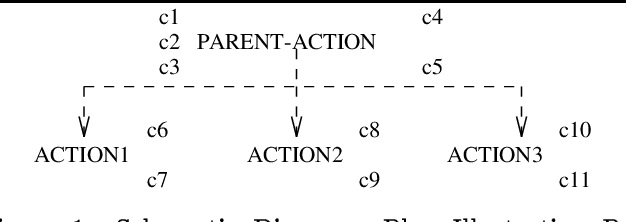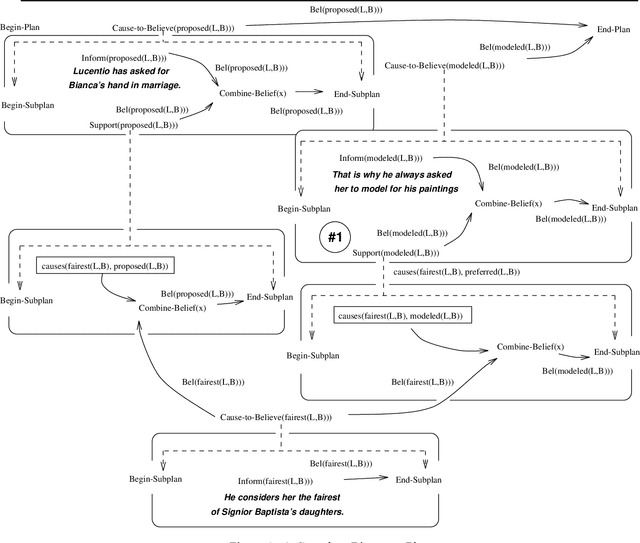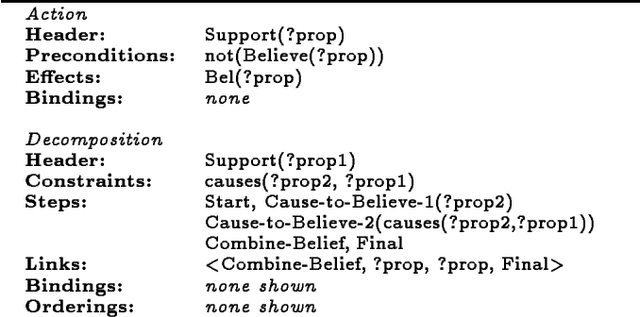DPOCL: A Principled Approach to Discourse Planning
Paper and Code
Jun 10, 1994


Research in discourse processing has identified two representational requirements for discourse planning systems. First, discourse plans must adequately represent the intentional structure of the utterances they produce in order to enable a computational discourse agent to respond effectively to communicative failures \cite{MooreParisCL}. Second, discourse plans must represent the informational structure of utterances. In addition to these representational requirements, we argue that discourse planners should be formally characterizable in terms of soundness and completeness.
* proceedings of the Seventh International Workshop on Natural
Langauge Generation, Kennebunkport, ME, June, 1994
 Add to Chrome
Add to Chrome Add to Firefox
Add to Firefox Add to Edge
Add to Edge